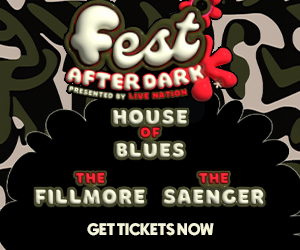Trickster or saint? Ever since the ’60s, trumpeter Lester Bowie has plied the art of the avant-garde, trying to get us to hear the music we call jazz with new ears.
A relentless proselytizer, he has worked in a range-of settings – the Art Ensemble of Chicago, the New York Organ Ensemble, and the Hip Hop Feel harmonic Orchestra, a 36-piece band that combines rappers, horns and a string section – and seems to revel in – the risk of daring compromises, as on ‘ last year’s surprisingly sublime Art Ensemble of’ Chicago release on Atlantic, Coming Home Jamaica, which pictured dramatic African masks on the cover, was sponsored by the Odwalla Juice Company, and featured titles like “Grape Escape” and “Lotta Colada.”
Now Bowie offers us a sort of in-your face pops concert, one that sounds improbable but succeeds in entirely unexpected ways. Leading the eleven piece Brass Fantasy (four trumpets, three trombones, French horn, tuba, drums, and percussion), Bowie runs us through a roller-coaster repertoire, from the Spice Girls and Marilyn Manson to Andrew Lloyd Webber and Puccini, with stops along the way for up-to-date rap (a selection from his brother Joseph’s band, Defunkt, and a tribute to the Notorious B.I.G.) as well as classic soul (Cole Porter’s “In the Still of the Night,” made famous by The Five Satins, and the Harold Melvin and the Blue notes’ hit, “If You Don’t Know Me By Now,” which closes the program).
Bowie sets the tone on the opening”Birth of the Blues” with a subtle trumpet solo employing every variety of whisper, smear, bent note, and mute, demonstrating the most aggressive of brass instruments to be fully capable of emulating the eloquence of the human voice. As the ensemble joins in and the arrangement builds to a full-chorus crescendo, Bowie’s intention is made clear: in attempting to deconstruct the indestructible, he’s cleared a middle ground, not militant art or fawning pop, where jazz can exist, as he puts it, as “neither specific repertoire, nor academic exercise, but a way of life.”
With perfect pacing (a delicate “Two Becomes One,” from the Spice Girls followed by a rousing nine-minute “Don’t Cry for Me Argentina,” leading to the almost harsh “Beautiful People,” by Marilyn Manson and, finally, descending to the lush harmony of “In the Still of the Night”).
Bowie seduces and challenges us, offering us the familiar one moment and the unfamiliar the next, mixing the two with unhurried charm (on this album dedicated “The King of the Long Distance Runners, Doc Cheatham”) and providing his revolutionary agenda, after all these years, may just be ready for prime time.




